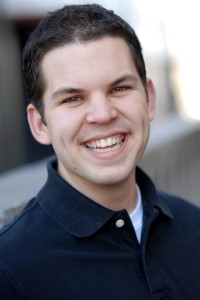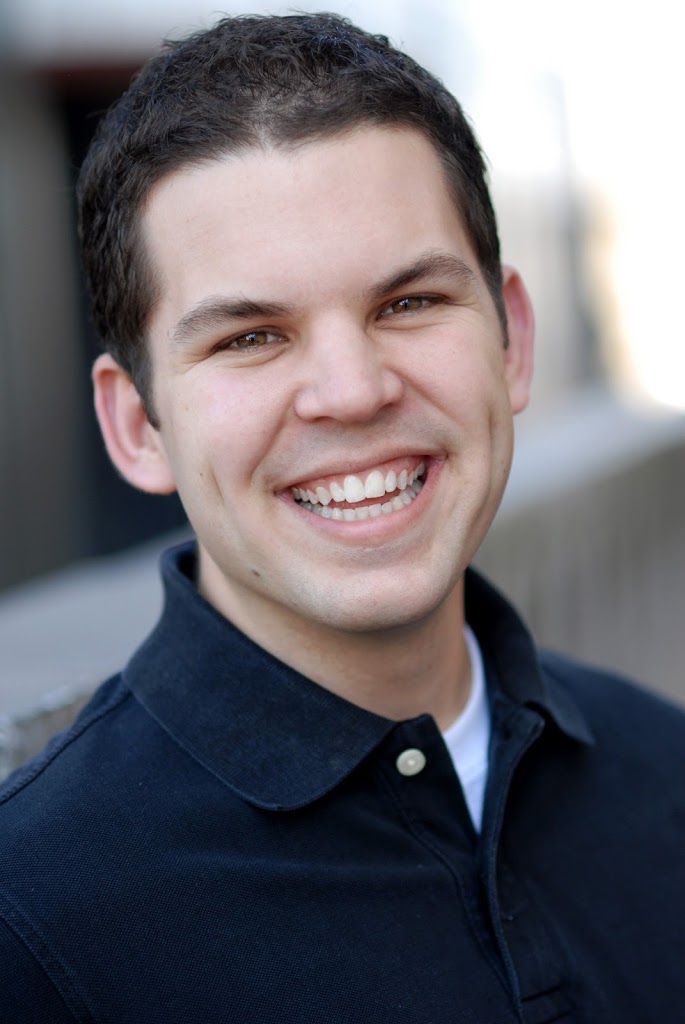 3 Lessons and 2 Tips is a new series of interviews in which some of my favorite people (and probably some of yours) share three lessons they’ve learned by being married, plus two tips for single people. This edition features Brandon Vogt, Catholic blogger and author of The Church and New Media, who has been married since May 17, 2008. He and his his wife have three children.
3 Lessons and 2 Tips is a new series of interviews in which some of my favorite people (and probably some of yours) share three lessons they’ve learned by being married, plus two tips for single people. This edition features Brandon Vogt, Catholic blogger and author of The Church and New Media, who has been married since May 17, 2008. He and his his wife have three children.
AS: How did you meet your wife?
BV: My wife and I grew up in the same town and we met in high school. We were juniors together when we started dating, (and) we were in band together. We both played clarinet, (and) depending on who tells the story, either I was ahead of her or she was ahead of me and we would challenge each other, back and forth. What started as competitive relationship eventually blossomed into a loving relationship.
AS: What’s the first lesson you’ve learned by being married?
BV: The necessity of dying to self. I’ve found that the more I die to my own desires to serve the desires of my wife and my children, paradoxically, their desires become my own. Once I die to myself and my own desires, those desires are resurrected in new forms in the rest of my family. I have had to learn to that to be a great husband means to be a selfless husband.
AS: And the second lesson?
BV: To remain calm. Especially when you have young kids, lots of days things get out of control. Kids are screaming. They’re misbehaving. It seems like your breaking point. It’s easy for husbands and wives to take it out on each other, but we know that’s totally counterproductive. It ultimately damages your relationship. The best way to serve your family is as a united husband and wife. I have to remind myself that this, too, shall pass. All frustrations will ultimately pass.
AS: And the third lesson?
BV: To ground yourself in the Lord. We’ve found that in our marriage, the strongest periods are the times when we are both seeking the Lord, individually and together. There are weeks and months when we’ve just grown leaps and bounds in our relationships with the Lord; we pray together, discuss our spiritual lives, read the Bible together. Other times, there’s a lull. When our spiritual lives are firing together on all cylinders, it’s quite evident. When there’s a lull, when spiritual matters are ignored and we become ambivalent, that evidences itself through little flare ups, bickering, little problems here and there. When we are spiritually attuned together, our relationship flourishes. When we’re not, our unity breaks down.
AS: What’s one tip for readers who are single?
BV: One thing I heard a lot as a single is that when you’re single, you should be preparing yourself for marriage. It’s good advice, but I’d add (a caveat): Catholic sexual teaching has held for centuries (that) everyone is called to get married, but not everyone is called to marry a human being. Some people are called to marry God, either through the priesthood, or through the religious life, or through a consecrated community. Develop your relationship with God now because the way you relate to the Lord will influence your marriage, whether that’s a human marriage or a divine marriage.
AS: And a second tip for singles?
BV: Find a community. Whenever you’re single, it’s a rare point in your life where you can easily move in and out of a community. When you’re married, you’re in a community that you’re going to be in for the rest of your life, (whether that’s a) religious community, or (a community with your) spouse and kids. To prepare yourself for perpetual community, develop the skills to live in community with others. Find ways to enter into other types of small community now, whether that be small groups at your parish, local sports teams, groups of friends at work. Commit yourself to at least some form of community and learn how to live a communal life.
– – – –
Connect with Brandon Vogt: Click here to read his blog, here to like him on Facebook, and here to follow him on Twitter.







